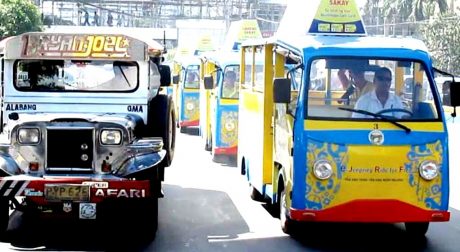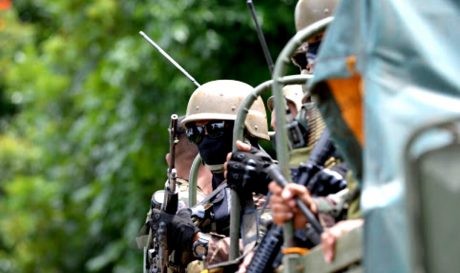
Philippine President Rodrigo Duterte is unlike previous Presidents the country has ever had. It’s not just his swearing and his unabashed tirades that make him exceptional. We already know that he is the first President to hail from Mindanao, which in itself is already a standout feature of his. But what the Opposition fail to realise is, he doesn’t care about the next election. This is very important because most of the previous Presidents do not stop being on campaign mode even after they’ve won the election because they are worried about pleasing the voters for their own political party’s survival in the next election.
Being preoccupied with the next election is what distracts other Presidents from doing their jobs. This is not just a problem in the Philippines, but also around the world especially in countries that allow incumbents to pursue a second term.
Take the case of previous President BS Aquino. Philippine law does not allow Presidents a second term, but even after he won, BS Aquino and his party mates did not stop campaigning against their opponents. Persecuting his predecessors as well as politicians he thinks will run for the next election became an obsession. The Liberal Party machine made sure those who were coming out as popular in survey polls for the Presidential Election in 2016 like former Vice President Jejomar Binay, Senator Grace Poe, and former Senator Ramon Revilla Jr were given the national spotlight.
Previous issues ignored and tolerated by the Liberal Party (LP) members themselves before those politicians announced their intention to run were being highlighted. All of a sudden Binay’s allegedly corrupt ways were exposed when they should have been scrutinised prior to him running for VP or when he was still committing the alleged crime when he was Makati City Mayor. The only explanation is that Binay was, himself, an LP ally in the past. Then Grace Poe’s citizenship status became an issue even when it was BS Aquino who appointed her Chairperson of the Movie and Television Review and Classification Board (MTRCB) back in 2010. Revilla’s use of his pork barrel funds quickly landed him in detention, never mind that BS Aquino also gave him additional pork for voting former Chief Justice Renato Corona “guilty” during his impeachment trial in 2012.
We now see why Duterte did not announce his intention to run for the Presidency up until the deadline came to a close. He knew if he had announced it earlier the way Binay did, he would have given the Liberal Party enough time to do a negative campaign against him. Binay was the topic of mainstream media chatter for more than a year leading up to the election and so were the others who became serious contenders for the Presidential Election. The public was preoccupied with his unexplained wealth. The senate conducted hearings after hearings to “investigate” Binay’s alleged “corrupt” ways.
What is the point in recounting all this? The point is, during his term, BS Aquino failed to do his job well as the country’s administrator because he and his allies were more focused on the next election. That is not the case with the current administrator. Duterte doesn’t care if he offends some members of the public in implementing his policies. He’s not running and doesn’t care who wins the next election.
Duterte’s policy against illegal drugs has certainly offended the sensibilities of his critics,particularly those who subscribe to liberal views. While they care more about the right of the drug lords and drug dealers to due process, Duterte knows that these menaces to society have the funds to buy their way out of jail. This might say a lot about the justice system in the country, but when the system is slow, it favours the criminals. The longer you wait for drug dealers and drug lords to be put behind bars, the deeper the drug problem gets. The drug trade doesn’t stop operating for anyone after all.
It has become a battle of rights. The rights of drug dealers versus the rights of their victims. The right to due process is there for everyone to enjoy — in theory, that is. But in the Philippines, those with the most expensive lawyers usually do jump for joy. Duterte has been very clear that he prioritises the protection of the public against illegal drugs. It is fair for some to say that Duterte should also focus on stopping the importation of drugs in the country. It would be futile to continue going after the distributors if he can’t stop the flow of drugs coming in to the country.

The declaration of Martial Law in Mindanao offered more proof that Duterte doesn’t care about his popularity. He felt the need to declare Martial Law in the region to contain the threat of terrorists allied with ISIS seeking refuge in Marawi City. Those who insisted that this was a prelude to a dictatorship were proven wrong after the Philippine military successfully neutralised the leaders of the terrorist group Maute this week. Despite the noisy protests from anti-Martial Law activists, Duterte’s popularly remained unchanged at 80%. That is, if we are to believe the recent survey results from Pulse Asia survey firm.
Duterte’s ambivalence to offending voters is a policy he also applies to the issue of public transport. His government is hell-bent on pushing through with phasing out public utility jeepneys (PUJs) by the end of the year and replace them with better-looking and environmentally-friendly vehicles. Both jeepneys and their drivers have been a menace to society for decades. The antiquated vehicles emit black carbon that contributes pollutes the environment. This results in respiratory and cardiovascular diseases for those exposed to the poisonous emissions every day. In other words, jeepneys are causing slow death in the Philippines.
It’s actually baffling why law enforcement agencies do not penalise jeepney operators since a lot of the vehicles plying the roads obviously do not comply with the safety standards required of vehicles before being allowed to run. Previous governments have been too lenient on these jeepney operators because the drivers and their supporters use emotional blackmail. They always use the “poor” card and say that they will lose their livelihood if they get rid of their jeepneys. Well, too bad for them, Durterte doesn’t play that game. This is what he had to say to those who oppose his plan to replace the jeepney:
“Jan. 1. If you can’t modernize that, leave. You’re poor? Son of a bitch, go ahead, suffer in poverty and hunger, I don’t care.”
Despite the two-day strike held by jeepney drivers belonging to the Pinagkaisang Samahan ng mga Tsuper at Operator Nationwide, or PISTON, Duterte did not stand down. Hopefully, his government will be better-prepared for the next strike. He should not allow these groups to hold the Filipino people hostage to their backward thinking. They are part of the reason the country cannot move forward.
It’s has now become a battle between the “poor” drivers and the safety, comfort and well-being the majority of the public. Those who stand by the drivers are mostly driven by their emotion. They are being sentimental about losing what they call an “icon”. Never mind that the jeepney is not even an original Filipino invention. It was just a modified and uglier version of the American jeep used by the US military in World War II. It has no seat belts and it is very uncomfortable for passengers.
While Duterte’s modern, environmentally-friendlier public utility vehicle is better than the jeepney, it is still not going to solve the traffic problem in Metro Manila. The number of vehicles will not be reduced. If the plan goes ahead, the same number of vehicles will still occupy the roads once the drivers get on board the move especially since Duterte offered to give drivers a loan that they can pay off by one peso a day.
Filipinos are in a unique position with Duterte since he has the resolve to implement unpopular policies that could have lasting positive impact for Philippine society. It is easy to issue motherhood statements, but a strong leader who leaves a lasting legacy is someone who, to quote a cliché, can walk the talk.

No comments:
Post a Comment